One doctor on CNN said it this way: "If you have 1000 men over 60 with the old coronavirus maybe 10 of them might die but with the new variant maybe 13 or 14 might die."
Accessibility links
Live Reporting
Get involved
- Send an email to haveyoursay@bbc.co.uk
Friday's coronavirus briefing was led by Prime Minister Boris Johnson.
He was joined by Chris Whitty, the chief medical officer, and Patrick Vallance, the chief scientific adviser.
Here's what they told us:
- There is some evidence that the new variant of the virus is associated with higher mortality, as well as being more infectious
- For an average man in his 60s, the risk of dying with the original virus is 10 in 1,000 cases. Evidence suggests the risk with the new variant is 13 or 14 deaths in 1,000 cases, but this is uncertain
- The number of people in hospital with Covid is 78% higher than it was in the first peak in April
- Vaccines appear to be effective against the UK variant, but there is concern about their effectiveness against variants from South Africa and Brazil
- At the moment, people who have had a vaccine must stick to social distancing rules. The vaccine prevents severe disease but may not prevent people catching and spreading the virus - especially as there is a lot of virus in the community
- Restrictions will not be lifted until infections have fallen, but there are no plans to tighten them
Bloomberg's Tim Ross asks whether delaying the second vaccine dose risks creating more resistant variants of the virus.
Patrick Vallance says the riskiest thing in terms of new mutations is high prevalence in the community.
He says the mutations currently circulating came about naturally due to transmission - but adds there is always "some risk" when there is partial immunity.
But he says that partial immunity also provides benefits in terms of protection for the most vulnerable.
Chris Whitty says, "Our overall view was that the balance of risks was in favour of having many more people in the UK vaccinated."
On support for businesses and jobs, the PM says the government will "do what it takes" to support livelihoods.
And with that, he ends today's No 10 briefing.
Asked whether the British public are ready for lockdown to stay in place for a long time, the prime minister says we will have to live with coronavirus for “a long while to come” but it is an open question "when and in what way" we can start to relax restrictions.
He says it depends on the vaccine rollout going well, getting case numbers down and whether there are discoveries of any more variants.
That doesn’t mean that "I’m not optimistic" about the rollout of the vaccine, he says, “but at this stage you really have to be very cautious indeed”.
He adds that the first thing that the government wants to open is schools, which is a priority.
Patrick Vallance says he expects the virus “to be around, probably, forever" but it is going to be controlled.
However, he says it is a very different outlook with increasing numbers of treatments and vaccines, but the key is “not getting too hooked up on specific dates”.
The new variant has been causing concern in government for a number of weeks.
Now the scientists believe there is some early evidence it could be causing slightly higher mortality – when you look at everyone testing positive.
The overall message from the prime minister is pretty bleak, I’m afraid; that the terrible death figures we’ve seen in recent days will continue for a while.
We don’t seem to heading for a tighter lockdown in England because the PM believes the current measures are the right ones if people follow them.
But there was a clear message there that we can’t start unlocking society until the rates come down significantly – we’re in this for a while.
The Daily Telegraph's Gordon Raynor raises a video he says has been posted by Health Secretary Matt Hancock aimed at travel agents, suggesting the South African variant is 50% less susceptible to vaccines than the original strain of the virus.
He asks whether this is correct and, if so, whether it will affect the government's approach to whether to tighten UK border controls.
The PM runs through the measures that the UK has in place, including the ban on direct flights from South Africa and "rigorous" obligations for people entering the UK in terms of quarantine and tests.
But he suggests "we may need to go further to protect our borders", saying the massive progress the UK is making in terms of vaccinations cannot be undermined.
Sky News's Sam Coates asks whether, if the new variant is more dangerous, it is right that more people are "out and about" during the current lockdown than the first one last year.
The PM says that "we are enforcing the law very strictly with increasing toughness", meaning increased fines to dissuade risky behaviour.
"It depends on everybody doing the right thing and avoiding transmission," he says, adding that is what will be more effective than police action.
On why the new variant may be transmitting more readily, Sir Patrick Vallance says it is not believed the new variant has a higher viral load, meaning people "shed more virus". He suggests it may be other factors that make it more transmissible.
On the current infection rate, Chris Whitty says that while infections are slowly going down "it is at a very, very high level". He says that among some age groups - including those 20 to 30 - infections may still be increasing.
And on hospitalisations, he says that they are "broadly flat" for the UK as a whole, but there are variations between regions. "That peak is not yet definitely going down yet," he says.
Deaths will be delayed further with the peak expected in the future, he adds.
The next question asks about whether the UK variant means lockdown restrictions will last longer.
The prime minister says he thinks the country has “the right package of measures” to deal with the new variant and people need to comply with them.
He says there are signs in the data that infections are flattening, although the rates are still “very high” so the government “can’t begin to consider unlocking”.
The vaccination programme could change this, he says, but the UK is in a position where cases are so high that unlocking could lead to “a big rebound”.
Asked whether the South African variant is in the UK, Patrick Vallance says some cases have been detected but he says the key thing is to try to contain it.
He adds that “there is no evidence” that the South African or Brazilian variants have transmission advantages over the variants already in the UK and so having cases here doesn’t mean “they will take off”.
Now we move on to questions from journalists, the first of which is from the BBC's health editor, Hugh Pym.
In light of the information about the danger posed by the new variant, he asks the PM whether he expects the current death trends to rise more steeply and then fall more slowly.
In response, the PM says there was a big surge in deaths over the Christmas period which is continuing and he sadly believes this will continue to be so "for a while to come".
Prof Whitty says the "shape of the curve" is driven by the rate of infections, which has been going up and is now coming down.
Sir Patrick says the death numbers are "awful" and are likely to continue at current levels for some while, saying this is what was predicted for some time.
In response to a separate question about evidence emerging from Israel that the Pfizer-BioTech vaccine might not be as effective as first thought, Sir Patrick says there needs to be further research but overall the efficacy of the approved vaccines is proven.
The second question from a member of the public comes from Sally, from Oxfordshire, who asks whether those who have been vaccinated are allowed to mix together with others who have had a jab.
Chris Whitty says that - even with the very effective vaccines - there is a period of time straight after a jab "where there is no effect". He says people won't see protection for around two to three weeks following their vaccination - and even then "that protection will not be complete".
He says a large proportion of people in the community have currently got the virus - "so the risk is if you have the vaccine you still have some residual risk".
Whitty adds that the lockdown is helping to get the rates of infection right down - to allow those who have been vaccinated more protection.
"Over time, the answer will be yes - but at this point in time the answer will be no," he says.
Sir Patrick Vallance adds there is uncertainty around the vaccine's role in preventing transmission of the virus.
Now we turn to questions from the public. The first is from Tracey, in Wales, who asks about the gap between the first dose and the second dose of the vaccines and whether a longer gap will reduce its effectiveness.
England’s chief medical officer, Chris Whitty, says he is “absolutely clear” that everybody needs two vaccinations. He says the reason for extending the gap between the two doses is to double the number of people who can get the vaccine.
The "major limitation" is the number of vaccines we have to give, he says, rather than how many people they are able to vaccinate.
He says in the case of both the Pfizer and Oxford-AstraZeneca vaccines, "we think the great majority of the protection” is given by the first dose and the second dose will top that up and extend that over time.
The data will be kept under constant review, he adds.
There is, Vallance adds, "increasing confidence" - and clinical data to back this up - that vaccines will be equally effective in providing protection against the new Kent variant as well as the old variant.
This is good news, he says.
But he says there is "more concern" about the susceptibility of the South African and Brazilian variants to vaccinations.
There are concerns about this, he says, adding that it is being studied at laboratories around the world.
Sir Patrick Vallance says there are currently three coronavirus variants of concern, including the one first identified in Kent.
He says there is confidence that this Kent variant is spreading more easily than the old variant in the UK. "We don't yet understand why that is the case," he says.
It doesn't target any particular age group - "it can affect anyone of any age," he adds.
And on mortality - he says that, in hospitals, the outcomes look the same between the original variant and the new variant.
He says other data from those who test positive with the new variant suggests greater mortality - but stresses that these data are currently uncertain.
He says that - for example - early evidence suggests the difference is between 10 deaths in 1,000 infected with the earlier variant to 13 or 14 in 1,000 infected with the new variant.
Next up is England’s chief medical officer Chris Whitty, who runs through the UK’s latest coronavirus data.
He says there has been “a turning the corner” in the number of people catching the virus, but it is coming down from an “exceptionally” high level.
He says the number of people in hospital has been increasing “all the time” although there are signs overall that this is “flattening out” and in the South East, East of England and London there are also signs of a reduction.
He says the reduction in cases will take time to work its way through to hospital numbers.
The PM says there are more than 38,000 people in hospital, 78% higher than there were at peak of the first wave, and more than 40,000 people have been infected in the last 24 hours.
He says the NHS is under significant strain and this is why the public must follow the rules.
On the brighter side, he says 400,000 vaccinations have been carried out in the last 24 hours.
"There is more to do and the target remains stretchy," he says.
The PM begins by saying that the government has tried to update the public as soon as possible to changes to scientific data on the coronavirus.
He says it "now appears there is some evidence that the new variant... may be associated with a higher degree of mortality".
Prime Minister Boris Johnson is due to speak at today's No 10 coronavirus briefing shortly.
He will be joined by the UK's chief medical adviser Chris Whitty and chief scientific adviser Sir Patrick Vallance.
We'll bring you all the latest updates, analysis and reaction - and you can watch the briefing live through the stream above or on the BBC iPlayer.
The Cuban government says it is confident to be able to vaccinate its entire population with its own vaccine, “Soberana 2”, by the end of the year. Though testing is still ongoing, it also hopes to produce 100 million doses for other nations in Latin America.
The communist-run island has a great deal of experience in coming up with its own solutions, not least in medicine. The decades-long US economic embargo has forced it to become self-reliant and find creative solutions to challenges posed by sanctions on everything from medical equipment to drug components.
Cuba also has vaccine experience. For example, the renowned Finlay Institute in Havana was credited with finding the first vaccine against meningococcus B.
Though the island's Covid-19 numbers remain low by the standards of some nations, they are creeping upwards. Having brought the spread of the virus almost completely under control at one stage last year, it has noticed a deterioration since re-opening to tourism.
Havana is now once again under a strict lockdown and the population are growing weary of a situation that has exacerbated the relentless economic hardship.
A funeral has been held for a "hero" paramedic who died after contracting coronavirus.
Tony Chadbourne, known as Chad, died with the virus just before Christmas.
The 46-year-old worked for East Midlands Ambulance Service in the Nottinghamshire and Lincolnshire Divisions for 23 years.
His funeral took place in Keyworth, Nottinghamshire, with a procession through the town and colleagues holding a minute's silence at the same time.
Chadbourne's family have described him as "an NHS hero" who had three major loves in his life - his family and friends, watching Nottingham Forest and England play football, and his role as a paramedic.
His life was celebrated by the club on Wednesday night before their game against Middlesbrough, with the players wearing warm-up T-shirts featuring his picture.
Let's take a look at some of the latest coronavirus headlines in the UK ahead of today's No 10 briefing from Prime Minister Boris Johnson and his top medical and science advisers.
- The epidemic appears to be shrinking in the UK, with new data suggesting the country's R number is at or below one for the first time since early December
- Office for National Statistics figures also suggest cases are decreasing slightly or levelling off across Britain
- But case numbers may be rising in Northern Ireland
- Police broke up a wedding party in north London where they said about 400 people had gathered - prompting outrage from community leaders
- No 10 says there are no plans to pay everyone in England who tests positive for Covid £500 to self-isolate, despite reports saying ministers were considering the policy
- And the release of the next James Bond film has been delayed for a third time because of the pandemic
We'll bring you all the updates from the PM's news conference when it begins at 17:00 GMT.
The latest data on the spread of coronavirus in the UK offers hope that the lockdown measures are having some impact, despite record numbers of cases and a more infectious variant circulating.
The R number is at or below 1 which tells us the number of new people getting infected is hopefully decreasing. On average, every 10 people with the virus will be passing it on to between 8 and 10 others.
This latest pandemic wave appears to be receding, but slowly and not everywhere. In some parts of the UK, including Northern Ireland and the Midlands, infections are still growing.
There is no suggestion lockdown measures can be eased any time soon. Hospitals are feeling the strain of treating large numbers of people who are seriously ill with Covid in addition to managing all the other "usual" urgent conditions, such as heart attacks and strokes. It will take many weeks for the situation to improve for the NHS.
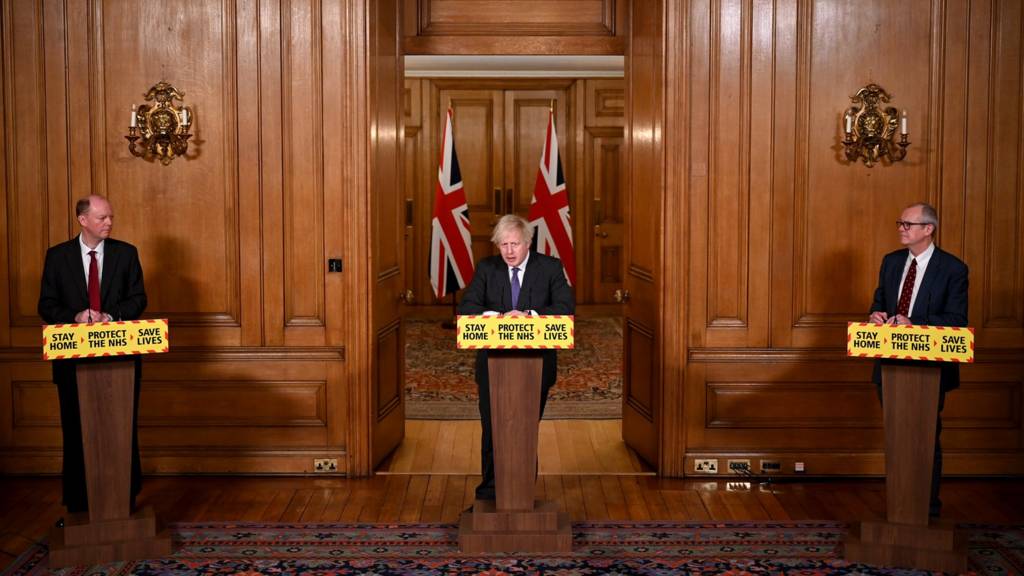
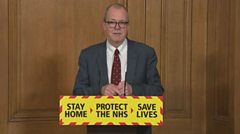

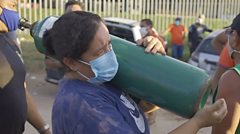
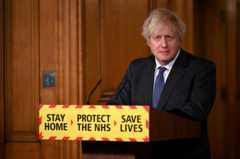

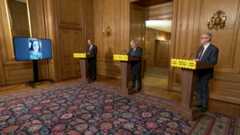
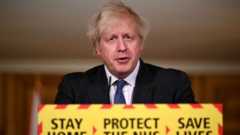
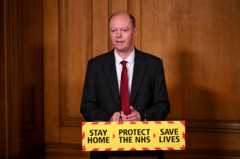
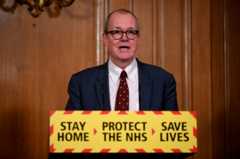
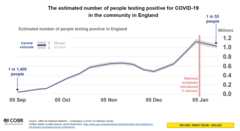
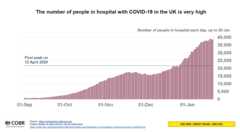
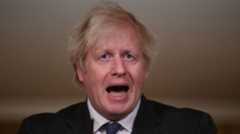


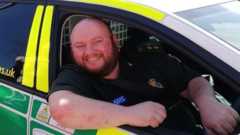
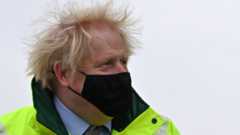

No comments:
Post a Comment